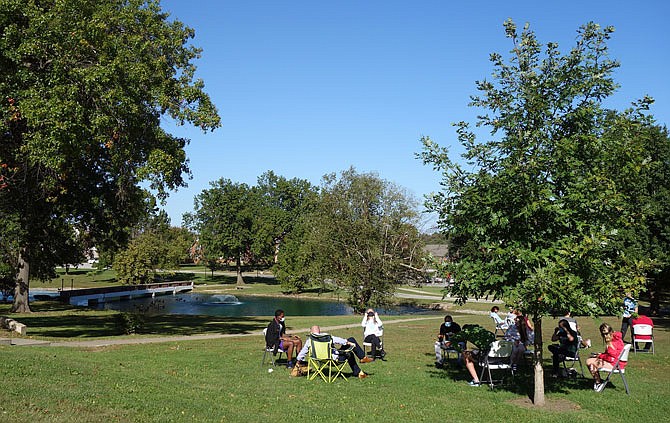In a fall semester unlike any other in its 150-year history, William Woods University managed to achieve enrollment gains in two key metrics while holding steady in another, the university reported last week.
Despite disruption caused by the COVID-19 pandemic, WWU welcomed 237 new students to campus this fall, including new students and transfers - an increase of one student over the Fall 2019 semester total. The university's retention rate of traditional undergraduate students held steady at 72 percent.
Perhaps unsurprisingly, WWU's online degree programs proved popular this semester. The programs drew 550 new students from 40 states and four countries, an increase of 14 percent over the previous year.
"The challenges we have addressed over the past six months due to COVID-19, similar to all higher education institutions, have been extraordinary," WWU President Jahnae H. Barnett said. "The fact that we have been able to hold steady in terms of new student enrollment and retention, while significantly increasing our online presence in the face of these challenges, is tantamount to the strength and vitality of our university in its 150th year of operation."
Seven weeks into the fall semester, the university continues to hold in-person instruction despite the pandemic, a commitment it made in May. As of Wednesday, the university reported zero active cases of COVID-19 among its student population.
"We have always been proud to maintain that William Woods is a school where we will provide students with a quality college education," Barnett said. "It is also a place where we will do everything in our power to keep our students safe. The commitment to health and safety measures by our entire campus community this fall has been exemplary."
Under Barnett's leadership, William Woods has instituted a series of initiatives that have benefited enrollmment, WWU spokesperson John Fougere said. These initiatives included adding graduate and online courses in the early 1990s, long before most institutions similar to WWU were doing so; moving the university to co-ed status; strengthening the institution's nationally acclaimed equestrian science program and establishing unique degree programs.
Total enrollment at William Woods has increased by more than 300 percent in the 30 years of Barnett's tenure.
Fulton's other institute of higher learning, Westminster College, also reported gains in freshman enrollment this year. At exactly 177 students, the class of 2024 is the largest freshman class the college has welcomed in four years and represents a 25 percent gain over the previous year.

